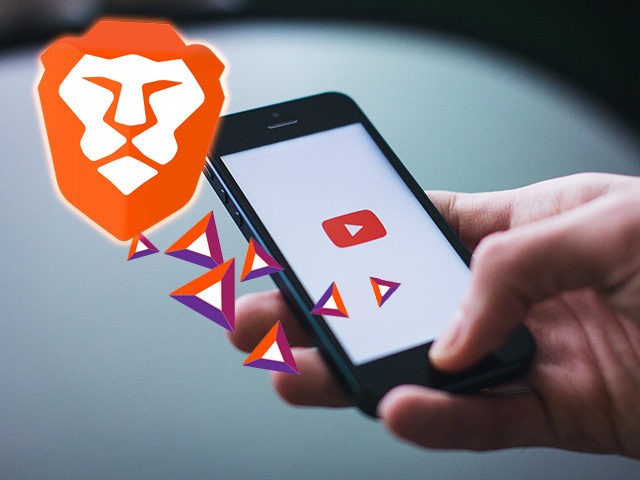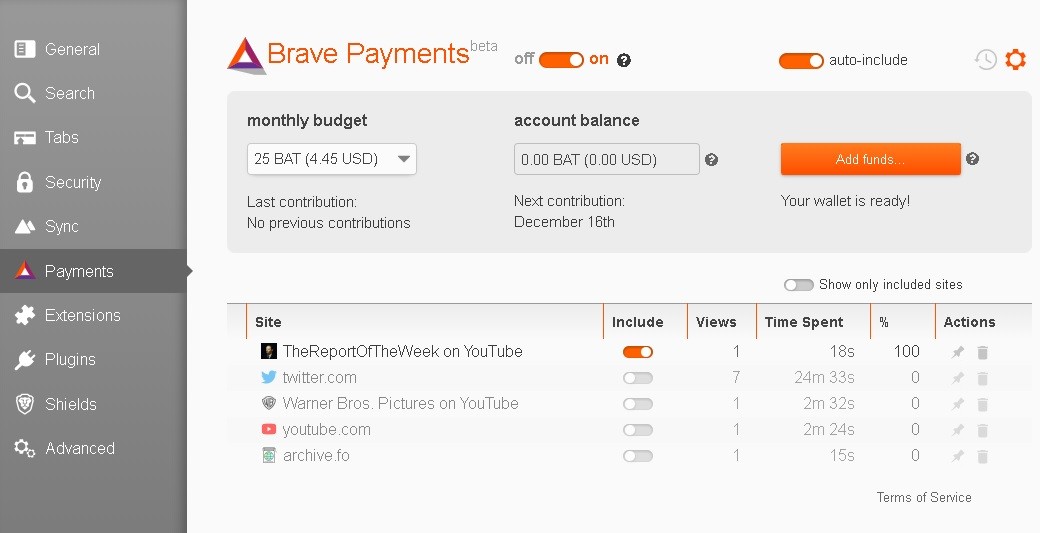Brave, the Internet browser from Brendan Eich — the creator of JavaScript and former Mozilla CEO chased out of the company because of political wrongthink — has announced a new feature that users might use to combat YouTube’s growing censorship of independent channels in favor of corporate brands.
Earlier this year, Brave created its own decentralized digital currency, the “Basic Attention Token” (BAT). BAT’s purpose is to reform the Internet’s dominant system of monetization — advertisers paying per click or per impression — and instead empowering users to become patrons of their favorite sites and publishers. This blockchain-based payment method will hopefully counteract the rampant politicization of corporate ad buys, which have caused a chilling effect on free speech.
If a Brave user has already purchased BAT, he can load it into the browser’s wallet or convert other top currencies — Bitcoin, Litecoin, and Ethereum (all of which can be simply bought with USD) — into BAT. The browser’s settings page has a “Payments” tab where the user can see all the sites he has visited and select which ones to give BAT and how much. On Thursday, Brave announced that instead of their BAT only going to Alphabet, the parent company of Google and YouTube, users can now direct their payments to the owner of a particular channel.
This feature could be a godsend to channels that run afoul of the tech world’s largely progressive culture — such as talk show host Dave Rubin and fast food reviewer TheReportOfTheWeek, who have both seen arbitrary and widespread demonetization of their channel’s videos. Rubin’s apparent sin is interviewing guests with politically incorrect views, and the very wholesome “Review Brah” seems to have been punished for giving honest reactions to the products of major corporate brands.
Some of the platform’s top independent voices have shown example after example of double standards for their channels and for institutional media entities. Vlogger Philip DeFranco famously called out YouTube for allowing Jimmy Kimmel (who works for ABC/Disney) to run ads on a video about September’s mass shooting in Las Vegas, NV — while preventing a prominent liberal vlogger, Casey Neistat, from collecting ad revenue on a video that he would then donate to a charity to help the victims.
One BAT is currently worth $0.166225, according to CoinMarketCap.com. Yes, all those extra decimal points matter — because with digital currencies, the action’s in the fractions. If a video gets 500,000 views and just one percent of viewers (5,000) send 1 BAT, then the creator would receive the equivalent of $831.12 (instead of just $800 for a rounded-down $0.16 conversion). By comparison, YouTube may on average pay $2,000 for one million views, according to a 2016 analysis from marketing firm Devumi. More recently, the owner of a YouTube channel called 9 Media stated that the figure is usually $1,500 per million.
Thus, the BAT payment system could allow smaller, independent channels to restore their revenue to pre-“Adpocalypse“ levels even if Alphabet demonetizes all of their content to please corporate ad buyers.
Brave’s new system of decentralized payments — an everyday crowdfunding tool — could greatly improve the Internet and protect free speech all in one. The BAT is just one way that the blockchain technology popularized by Bitcoin will actually change the world beyond just
For full disclosure — At the time of this writing, I own some of the currencies mentioned in this article: Ethereum and Litecoin.
Ezra Dulis is Deputy Managing Editor of Breitbart News. Follow his personal blogging on Steemit and Twitter. Of course, don’t buy or sell anything based on his views; he is not a financial professional.


COMMENTS
Please let us know if you're having issues with commenting.